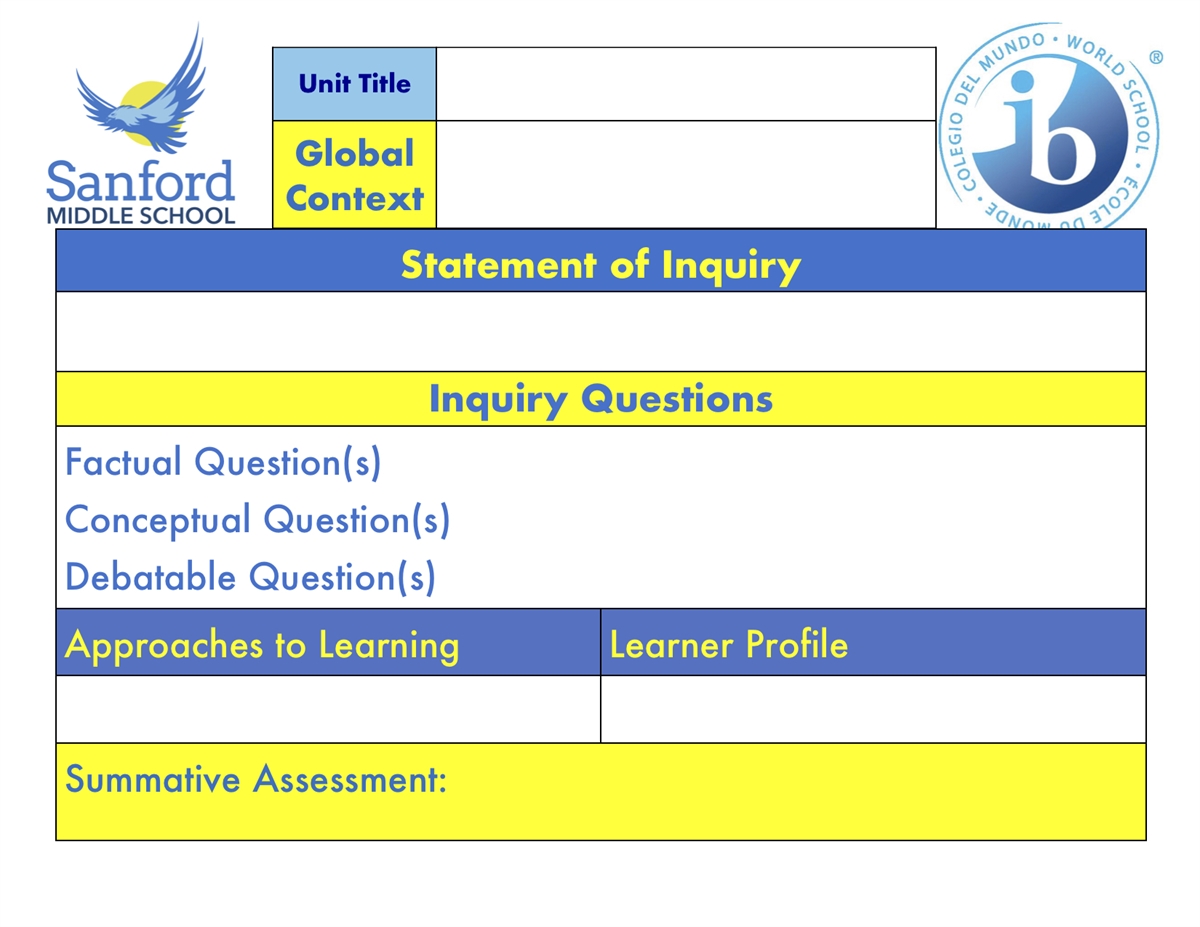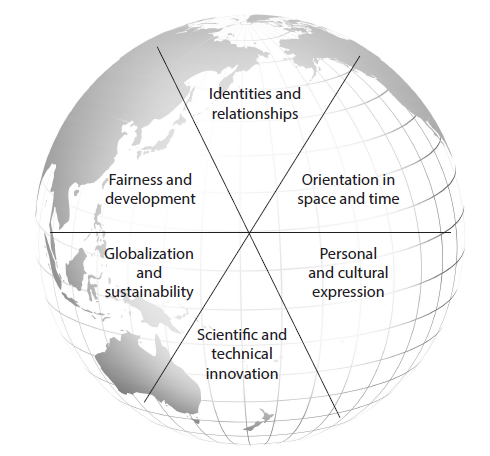
Sanford's MYP Unit Planner Poster-This is what teachers start with to begin backwards planning their units.
Unit Planning Overview
Unit Planning in the MYP framework guides our collaboration and instruction at Sanford. There are many parts to the MYP Unit Plan but here are a few that students will be come familiar. These parts guide the unit towards new learning and a summative assessment and require complex thinking and approaching to learning skills and applications of the learner profile.
Concept Development & Focused
The MYP identifies 16 key concepts to be explored across the curriculum. These key concepts, shown below, represent understandings that reach beyond the eight MYP subject groups from which they are drawn.
Aesthetics | Change | Communication | Communities |
Connections | Creativity | Culture | Development |
Form | Global interactions | Identity | Logic |
Perspective | Relationships | Systems | Time, place and space |
Each unit has at least one and each subject area has 3-4 to focus on. Each subject also has related concepts that dive deeper into the specific area of study and units include a few of those related concepts in their unit plan as well.
Statement of Inquiry & Inquiry Questions
Teachers construct the statement of inquiry for a unit by combining a key concept, one or more related concepts, and a global context for the unit into a meaningful statement that students can understand. This statement expresses the relationship between concepts and context. Each unit has factual, conceptual and debatable questions to investigate the statement of inquiry. Students are also encouraged to develop their on inquiry questions during a unit.
Global Contexts
Teaching and learning in the MYP involves understanding concepts in context. Global contexts provide a common language for powerful contextual learning, identifying specific settings, events or circumstances that provide more concrete perspectives for teaching and learning.
Credit: MYP: From Principles into Practice








